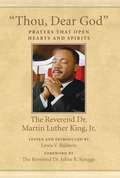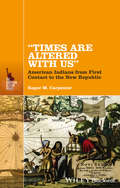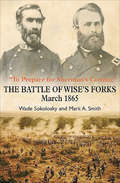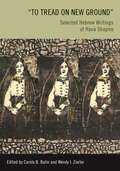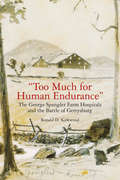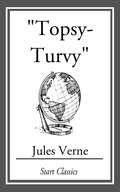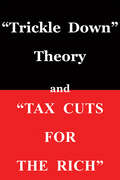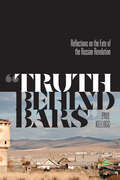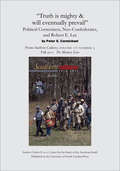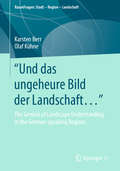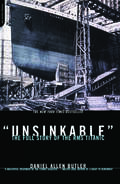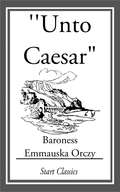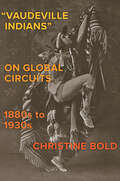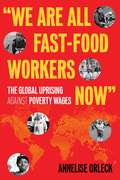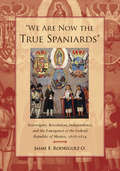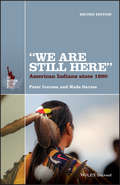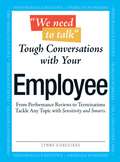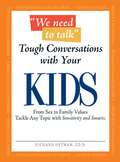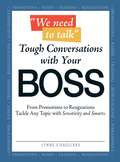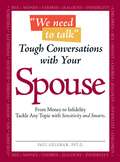- Table View
- List View
"Thou, Dear God"
by Martin Luther King Jr."Thou, Dear God" is the first and only collection of sixty-eight prayers by Martin Luther King, Jr. Arranged thematically in six parts--with prayers for spiritual guidance, special occasions, times of adversity, times of trial, uncertain times, and social justice--Baptist minister and King scholar Lewis Baldwin introduces the book and each section with short essays. Included are both personal and public prayers King recited as a seminarian, graduate student, preacher, pastor, and, finally, civil rights leader, along with a special section that reveals the biblical sources that most inspired King. Collectively they illustrate how King turned to private prayer for his own spiritual fulfillment and to public prayer as a way to move, inspire, and reaffirm a quest for peace and social justice. With a foreword by Rev. Dr. Julius R. Scruggs, it is the perfect gift for people and leaders of all faiths, and an invaluable resource for spiritual individuals and those who lead worship.
"Times Are Altered with Us": American Indians from First Contact to the New Republic (The American History Series)
by Roger M. Carpenter"Times Are Altered with Us": American Indians from Contact to the New Republic offers a concise and engaging introduction to the turbulent 300-year-period of the history of Native Americans and their interactions with Europeans—and then Americans—from 1492 to 1800. Considers the interactions of American Indians at many points of "First Contact" across North America, from the Gulf of Mexico to the Pacific and Atlantic Coasts Explores the early years of contact, trade, reciprocity, and colonization, from initial engagement of different Indian and European peoples—Spanish, French, Dutch, English, and Russian—up to the start of tenuous and stormy relations with the new American government Charts the rapid decline in American Indian populations due to factors including epidemic Old World diseases, genocide and warfare by explorers and colonists, tribal warfare, and the detrimental effects of resource ruination and displacement from traditional lands Features a completely up-to-date synthesis of the literature of the field Incorporates useful student features, including maps, illustrations, and a comprehensive and evaluative Bibliographical Essay Written in an engaging style by an expert in Native American history and designed for use in both the U.S. history survey as well as dedicated courses in Native American studies
"To His Coy Mistress" and Other Poems (Dover Thrift Editions: Poetry)
by Andrew MarvellOne of the greatest of the metaphysical poets, Andrew Marvell (1621–78) was also among the most eclectic. His lyrics, love poems, satires, and religious and political verse display a remarkable range of styles and ideas that make him one of the most interesting and rewarding poets to study. In addition to their complexity and intellectual rigor, Marvell's poems abound in captivating language and imagery.This collection includes such masterpieces as "To His Coy Mistress," "The Definition of Love," "The Garden," "The Coronet," "A Dialogue Between the Soul and the Body," "On a Drop of Dew," "An Horatian Ode Upon Cromwell's Return from Ireland," "Upon Appleton House," and many others. Ideal for use in English literature courses, high school to college, this volume will appeal to poetry lovers everywhere.
"To Prepare for Sherman's Coming": The Battle of Wise's Forks, March 1865
by Mark A. Smith Wade SokoloskyThe Battle of Wises (Wyse) Forks, March 7-11, 1865, has long been thought of as nothing more than an insignificant skirmish during the final days of the Civil War and relegated to a passing reference in a footnote if it is mentioned at all. Mark A. Smiths and Wade Sokoloskys To Prepare for Shermans Coming: The Battle of Wises Forks, March 1865 erases this misconception and elevates this combat and its related operations to the historical status it deserves.By March 1865, the Confederacy was on its last legs. Its armies were depleted, food and resources were scarce, and morale was low. General Lee was barely holding on to his extended lines around Richmond and Petersburg, and Gen. William T. Sherman was operating with nearly complete freedom in North Carolina on his way north to form a junction with Union forces in Virginia. As the authors demonstrate, the fighting that is the subject of this book came about when Lt. Gen. Ulysses S. Grant initiated a broad military operation to assist Sherman.The responsibility for ensuring a functioning railroad from New Bern to Goldsboro rested with Maj. Gen. Jacob D. Cox. On March 2, 1865, Cox ordered his hastily assembled Provisional Corps to march toward Goldsboro. In response to Coxs movement, Confederate Gen. Joseph E. Johnston executed a bold but risky plan to divert troops away from Sherman by turning back Coxs advance. Under the command of the aggressive but controversial Gen. Braxton Bragg, the Confederates stood for four days and successfully halted Cox at Wises Forks. This delay provided Johnston with the precious time he needed to concentrate his forces and fight the large and important Battle of Bentonville.To Prepare for Shermans Coming is the result of years of careful research in a wide variety of archival sources, and relies upon official reports, diaries, newspapers, and letter collections, all tied to a keen understanding of the terrain. Sokolosky and Smith, both career army officers, have used their expertise in military affairs to produce what is not only a valuable book on Wises Forks, but what surely must be the definitive study of one of the Civil Wars overlooked yet significant battles. Outstanding original maps by Mark A. Moore coupled with period photographs reinforce the quality of this account and the authors commitment to excellence.
"To Tread on New Ground": Selected Hebrew Writings of Hava Shapiro
by Carole B. Balin Wendy I. ZierlerHava Shapiro is among the nearly forgotten Jewish women writers who sought acceptance in Jewish literary circles of the last century. Born in Slavuta (modern-day Ukraine) in 1878, she published works of fiction, memoir, literary criticism, and journalism, including a volume of short fiction and a scholarly monograph on the Czech leader Masaryk. Her handwritten diary--the first known diary to be kept by a woman in Hebrew--evokes not only the momentous events of her day but also the experiences of women like herself who failed to follow the dictates of Jewish tradition and aspired to roles beyond those of wife and mother. In "To Tread New Ground": Selected Writings of Hava Shapiro, editors and translators Carole B. Balin and Wendy I. Zierler present an English anthology of Shapiro's late-nineteenth- and early-twentieth-century Hebrew writings. The selection culls from her short fiction, feminist literary criticism, reportage and literary essays, as well as her diary and hundreds of letters. Shapiro chronicled, publicly and privately, such cataclysmic events as the Russian Revolution and both World Wars in addition to critical episodes in the Jewish past, including pogroms, mass migration, ruptures in traditional Jewish life, and the development of Zionism. A list of Shapiro's intimates, whom she describes in both her diary and published reminiscences, reads like a "who's who" of the Russian Haskalah, including Y. L. Peretz, Reuven Brainin, David Frischmann, Nahum Sokolov, Micha Yosef Berdischevsky, and Hayim Nahman Bialik. To further contextualize Shapiro's writings, Balin and Zierler include a thorough introduction and translations of critical essays about Shapiro. Balin and Zierler's Hebrew edition of Shapiro's writing, Behikansi atah, which was published in Israel in 2008, brought the first broad attention and readership to Shapiro's remarkable biography and writings. The translations in "To Tread New Ground," which include previously uncollected materials, will be welcomed by English-speaking readers interested in Hebrew literature, East European Jewish history, and gender studies.
"Too Much for Human Endurance": The George Spangler Farm Hospitals and the Battle of Gettysburg
by Ronald D. KirkwoodThe bloodstains are gone, but the worn floorboards remain. The doctors, nurses, and patients who toiled and suffered and ached for home at the Army of the Potomac’s XI Corps hospital at the George Spangler Farm in Gettysburg have long since departed. Happily, though, their stories remain, and noted journalist and George Spangler Farm expert Ronald D. Kirkwood brings these people and their experiences to life in “Too Much for Human Endurance”: The George Spangler Farm Hospitals and the Battle of Gettysburg. Using a massive array of firsthand accounts, Kirkwood re-creates the sprawling XI Corps hospital complex and the people who labored and suffered there—especially George and Elizabeth Spangler and their four children, who built a thriving 166-acre farm only to witness it nearly destroyed when war paid them a bloody visit that summer of 1863. Stories rarely if ever told of nurses, surgeons, ambulance workers, musicians, teenage fighters, and others are weaved seamlessly through gripping, smooth-flowing prose. A host of notables spent time at the Spangler farm, including Union officers George G. Meade, Henry J. Hunt, Edward E. Cross, Francis Barlow, Francis Mahler, Freeman McGilvery, and Samuel K. Zook. Pvt. George Nixon III, great-grandfather of President Richard M. Nixon, would die there, as would Confederate Gen. Lewis A. Armistead, who fell mortally wounded at the height of Pickett’s Charge. In addition to including the most complete lists ever published of the dead, wounded, and surgeons at the Spanglers’ XI Corps hospital, this study breaks new ground with stories of the First Division, II Corps hospital at the Spanglers’ Granite Schoolhouse. Kirkwood also establishes the often-overlooked strategic importance of the property and its key role in the Union victory. Army of the Potomac generals took advantage of the farm’s size, access to roads, and central location to use it as a staging area to get artillery and infantry to the embattled front line from Little Round Top north to Cemetery Hill just in time to prevent its collapse and a Confederate breakthrough. “Too Much for Human Endurance”: The George Spangler Farm Hospitals and the Battle of Gettysburg introduces readers to heretofore untold stories of the Spanglers, their farm, those who labored to save lives and those who suffered and died there. They have finally received the recognition their place in history deserves.
"Topsy-Turvy"
by Jules Verne"Topsy-Turvy" is an adventure novel by Jules Verne, published in 1889. It is a sequel to "From the Earth to the Moon", featuring the same characters from the Baltimore Gun Club but set twenty years later. Like some other books of his later years, in this novel Verne tempers his love of science and engineering with a good dose of irony about their potential for harmful abuse and the fallibility of human endeavors.
"Trickle Down Theory" and "Tax Cuts for the Rich"
by Thomas SowellThis essay unscrambles gross misconceptions that have made rational debates about tax policies virtually impossible for decades.
"Truth Behind Bars": Reflections on the Fate of the Russian Revolution
by Paul KelloggJust north of the Arctic Circle is the settlement of Vorkuta, a notorious camp in the Gulag internment system that witnessed three pivotal moments in Russian history. In the 1930s, a desperate hunger strike by socialist prisoners, victims of Joseph Stalin’s repressive regime, resulted in mass executions. In 1953, a strike by forced labourers sounded the death knell for the Stalinist forced labour system. And finally, in the late 1980s and early 1990s, a series of strikes by new, independent miners’ unions were central to overturning the Stalinist system. Paul Kellogg uses the story of Vorkuta as a frame with which to re-assess the Russian Revolution. In particular, he turns to the contributions of Iulii Martov, a contemporary of Lenin, and his analysis of the central role played in the revolution by a temporary class of peasants-in-uniform. Kellogg explores the persistence and creativity of workers’ resistance in even the darkest hours of authoritarian repression and offers new perspectives on the failure of democratic governance after the Russian Revolution.
"Truth is mighty & will eventually prevail": Political Correctness, Neo-Confederates, and Robert E. Lee
by Peter S. CarmichaelTruth is mighty & will eventually prevail" Political Correctness, Neo-Confederates, and Robert E. Leeby Peter S. CarmichaelWhy do we argue—and argue—so much about Robert E. Lee?"While northerners might appear comparatively apathetic about the memory of the Union cause, white southerners have been tenacious in searching for moral clarity in the past."
"Und das ungeheure Bild der Landschaft…“: The Genesis of Landscape Understanding in the German-speaking Regions (RaumFragen: Stadt – Region – Landschaft)
by Olaf Kühne Karsten BerrThe understanding of landscape in the German-speaking area has some similarities with the discussions of the topic in other European languages and scientific communities, but there are some specifics. These specifics can be found both in the common sense understanding of landscape and in the history of scientific conceptualization. Special features of the common sense understanding lie on the one hand in the medieval roots, a strong romantic charge and the strong connection between home and landscape. With regard to the scientific examination of landscape, there are specific fractions and discontinuities in the German-speaking world.Contents• Theoretical Framing: the Creation of Landscape• The Genesis of the Landscape Concept in the German Language Regions – the Common Sense Understanding• The Concept of Landscape in Landscape-Related Sciences• Landscape Research in its Interdisciplinary and Transdisciplinary ChallengeAbout the AuthorsDr. Karsten Berr works as a research assistant at the Department for Urban and Regional Development at the Eberhard Karls University Tübingen.Dr. Dr. Olaf Kühne is professor for Urban and Regional Development at the Eberhard Karls University Tübingen.
"Unsinkable": The Full Story of RMS Titanic
by Daniel Allen ButlerThis passionate yet balanced narrative explores every facet of the Titanic's history, including her spectacular conception in an Irish shipyard and the ambitious modern-day attempts to salvage her. The familiar story of the RMS Titanic-from her encounter with an iceberg to her demise some three hours later, taking with her more than fifteen hundred people-still looms large in the popular imagination, and in Daniel Butler's as well. He studied the Titanic's history for thirty years, intensively compiling facts about the disaster and the players involved (from Captain Smith and his crew to the ill-fated third-class passengers). He even made the startling discovery of a nearby ship that ignored the Titanic's distress call because the shipmates were afraid to awaken their captain. Drawn from primary sources and period accounts, this new narrative puts the disaster into historical context and serves as an essential resource for scholars of Titanic lore.
"Unto Caesar"
by Emmauska OrczyBaroness Emma Magdolna Rozália Mária Jozefa Borbála "Emmuska" Orczy de Orczi (23 September 1865 - 12 November 1947) was a Hungarian-born British novelist, playwright and artist of noble origin. She is most known for her series of novels featuring the Scarlet Pimpernel. This is one of her novels.
"Vaudeville Indians" on Global Circuits, 1880s-1930s (The Henry Roe Cloud Series on American Indians and Modernity)
by Christine BoldUncovering hidden histories of Indigenous performers in vaudeville and in the creation of western modernity and popular culture Drawing from little-known archives, Christine Bold brings to light forgotten histories of Indigenous performers in vaudeville and, by extension, popular culture and modernity. Vaudeville was both a forerunner of modern mass entertainment and a rich site of popular Indigenous performance and notions of Indianness at the turn of the twentieth century. Tracing the stories of artists Native to Turtle Island (North America) performing across the continent and around the world, Bold illustrates a network of more than 300 Indigenous and Indigenous-identifying entertainers, from Will Rogers to Go-won-go Mohawk to Princess Chinquilla, who upend vaudeville&’s received history. These fascinating stories cumulatively reveal vaudeville as a space in which the making of western modernity both denied and relied on living Indigenous presence, and in which Indigenous artists negotiated agency and stereotypes through vaudeville performance.
"Virtu," Virtue, and Success: Translating Your Moral Code into Management Practice
by Joseph L. Badaracco Jr.Managers are often faced with tough ethical decisions that affect not only themselves, but define their organization's role in society and its relations with stakeholders. This chapter draws practical advice for managers facing difficult problems from Machiavelli's and Aristotle's theories on moral code, virtue, and success. This chapter is excerpted from "Defining Moments: When Managers Must Choose between Right and Right."
"Watch Out for the Foreign Guests!"
by Orville SchellThis vivid, prophetic book on China's magnetic attraction to the West is the perfect introduction to China in the eighties.
"We Are All Fast-Food Workers Now": The Global Uprising Against Poverty Wages
by Annelise OrleckThe story of low-wage workers rising up around the world to demand respect and a living wage.Tracing a new labor movement sparked and sustained by low-wage workers from across the globe, "We Are All Fast-Food Workers Now" is an urgent, illuminating look at globalization as seen through the eyes of workers-activists: small farmers, fast-food servers, retail workers, hotel housekeepers, home-healthcare aides, airport workers, and adjunct professors who are fighting for respect, safety, and a living wage. With original photographs by Liz Cooke and drawing on interviews with activists in many US cities and countries around the world, including Bangladesh, Cambodia, Mexico, South Africa, and the Philippines, it features stories of resistance and rebellion, as well as reflections on hope and change as it rises from the bottom up.
"We Are Now the True Spaniards": Sovereignty, Revolution, Independence, and the Emergence of the Federal Republic of Mexico, 1808-1824
by Jaime E. Rodríguez O.This book is a radical reinterpretation of the process that led to Mexican independence in 1821—one that emphasizes Mexico's continuity with Spanish political culture. During its final decades under Spanish rule, New Spain was the most populous, richest, and most developed part of the worldwide Spanish Monarchy, and most novohispanos (people of New Spain) believed that their religious, social, economic, and political ties to the Monarchy made union preferable to separation. Neither the American nor the French Revolution convinced the novohispanos to sever ties with the Spanish Monarchy; nor did the Hidalgo Revolt of September 1810 and subsequent insurgencies cause Mexican independence. It was Napoleon's invasion of Spain in 1808 that led to the Hispanic Constitution of 1812. When the government in Spain rejected those new constituted arrangements, Mexico declared independence. The Mexican Constitution of 1824 affirms both the new state's independence and its continuance of Spanish political culture.
"We Are Still Here": American Indians Since 1890 (The American History Series #51)
by Peter Iverson Wade DaviesIn addition to revisions and updates, the second edition of “We Are Still Here” features new material, seeing this well-loved American History Series volume maintain its treatment of American Indians in the 20th century while extending its coverage into the opening decades of the 21st century. Provides student and general readers concise and engaging coverage of contemporary history of American Indians contributed by top scholars and instructors in the field Represents an ideal supplement to any U.S. or Native American survey text Includes a completely up-to-date synthesis of the most current literature in the field Features a comprehensive Bibliographical Essay that serves to aid student research and writing Covers American Indian history from 1890 through 2013
"We Need People to Lean into the Future"
by Adi Ignatius Doug Mcmillon"For years, Walmart seemed to understand exactly what its customers wanted. It developed complicated consumer analytics and used that data, along with relentless pressure on suppliers, to become a retail powerhouse that sold practically everything at the lowest possible prices. Then along came the internet. Suddenly upstart rivals figured out how to track and forecast like Walmart. And the rapid success of Amazon and other e-commerce pioneers called into question whether a brick-and-mortar giant, especially one with 4,600 stores in the United States alone, could survive, let alone thrive."
"We Need To Talk" - Tough Conversations With Your Employee
by Lynne EisaguirreWhen it comes to talking to an employee about a touchy topic, managers often find themselves at a loss for the right words. Before the talk, they are stuck wondering, "Where do I begin?" "What do I say?" and "How will he/she react?" Answering employers' most pressing questions, this go-to guide shows people what to say and how to say it. It features practical and precise advice for specific problem topics and realistic scripts that help dictate what should and should not be said. Not overly academic, this practical primer advises different-level managers, in all industries, how to have those conversations that they dread.
"We Need To Talk" - Tough Conversations With Your Kids
by Richard HeymanSex. Drugs. Divorce. When it's time for "the talk," many parents panic. They need a simple guide to help them - and now they have it. In this book, parenting expert Dr. Richard Heyman teaches parents how to approach kids with honesty and understanding. He answers questions like "How do I bring it up?", "What should I say?", and "How will he/she/they react?" It features practical and precise advice for specific problem topics and realistic scripts that help dictate what should and should not be said. Complete with realistic sample scripts, this go-to guide helps parents tackle tough topics with conviction and composure.
"We Need to Talk" - Tough Conversations With Your Boss
by Lynne EisaguirreAsking a boss about more responsibility, an inappropriate coworker, or for some extra help can be scary! Employees don't want to step on anyone's toes or cross any boundaries, but they need answers! Tackling your most pressing questions and offering advice on what to say and how to say it, this book is every stressed employee's dream come true. This step-by-step guide covers workplace dialogue dilemmas like leave requests, disability discussions, performance issues, and promotion requests.It features:practical and precise advice for specific problem topicspoints of quick reference at a great pricerealistic scripts that help dictate what should and should not be said.
"We Need to Talk" - Tough Conversations With Your Spouse
by Paul ColemanCouples need a straightforward, no-nonsense guide that teaches them how to initiate a difficult discussion with their spouse with composure, confidence, and a plan. From good opening statements to final remarks, relationship expert Paul Coleman, Psy.D., offers realistic scripts that cover topics like physical and emotional intimacy, mistrust and infidelity, unhappiness, and forgiveness. It features practical and precise advice for specific problem topics and realistic scripts that help dictate what should and should not be said.Perfect for couples who are struggling to communicate, this book is an honest guide to bettering a marriage.
